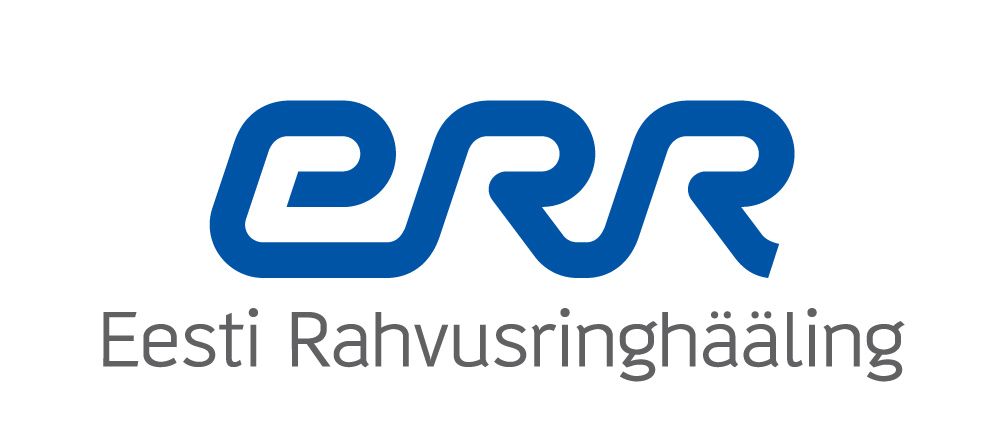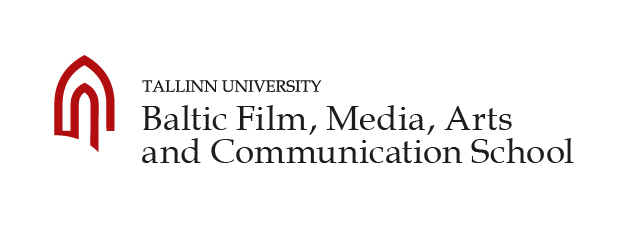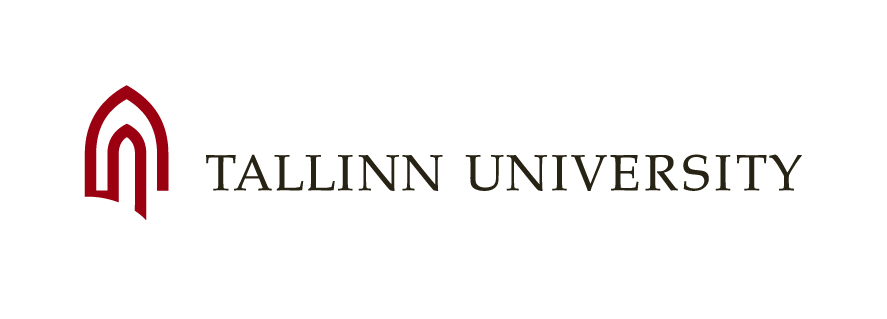Programme
Thursday, 22 November
9:00-9:30 Registration and morning coffee
9:30 – 10:00 Opening words
Indrek Saar, Minister of Culture
Katrin Saks, Director of Baltic Film, Media, Arts and Communication School at Tallinn University
Erik Roose, Chairman of the board, Estonian Public Broadcasting
10:00 – 10:45 Trust, Truth, Technology. Alexandra Borchardt, Reuters Institute of Journalism University of Oxford.
How do audiences consume news? Do they trust media, and to what extent are they willing to pay for digital journalism? Dr Alexandra Borchardt, Director of Leadership Programmes at the Reuters Institute for the Study of Journalism at the University of Oxford, will provide insights from the Reuters Institute’s Digital News Report, the largest ongoing survey on online news consumption worldwide
10:45 – 11:30 A view on so much more. Guido Nispen, Holland
If we want to provide an unshakeable foundation for a national audiovisual sector, then we need only two words: work together! That’s because it is only through a joint effort that the audiovisual industry can respond effectively to the rapid technologically and internationally driven developments in the media domain. And just in this way can we ensure a long and bright future for this sector.
11:30 – 12:00 DR Summer School for young talents. Sarah Cederberg, Danish Radio.
For one week 25 young Digital Production Talents solve tasks for four different editorials. The Talents are between 18-25 years old and come from all over Denmark. They have many different backgrounds, as autodidact video producers, photographers, storytellers, game developers, graphic and animation designers.
12:00 – 13:00 Lunch
13:00 – 13:30 Igniting European moonshots in media: from startups to ecosystems and beyond. Sten Saluveer, Storytek.
In the digital content race, Europe anno 2018 is losing to the GAFA superplatforms. Less money, attractive content, audiences, and impact. Yet new previously unforeseen opportunities and moonshots in media are emerging from the still rare intersection of Europe's vibrant research, tech, and content industries. The talk will outline key opportunities, drivers and obligations why and how European media and tech need to work together to ignite the next global moonshot along with case studies of project and initiatives across the continent.
13:30 – 14:00 German Media through the eyes of an Estonian. Merit Kopli, Estonian Cultural Attaché in Germany.
Media preferences of Germans and who competes with whom? What does the German PBS look like and how is it funded? What do the main TV channels in Germany show? How has Germany managed the integration of its largest minority in terms of media consumption?
14:00 – 14:40 What kind of mindset television studies might provide regarding the sustainability of a small television culture? Hagi Shein, TLÜ BFM.
Contemplation on the ideas (and acts) that a paradigm of a systematic approach on television culture can lead us and what kind of responsibility we have of our television culture in the Estonian post-public broadcasting digital-era.
14:40 – 14:45 Interlude. Urmas Vadi.
14:45 – 15:30 Amor triangulo: State – Private Media – Public Broadcasting
Mati Kaalep, Adviser in the Audiovisual Field of the Ministry of Culture
Hans H.Luik, Head of Ekspress Grupp
Erik Roose, Chairman of the Board of the Estonian Public Broadcasting
15:30 – 15:40 Summary of the day
Friday, 23 November
9:00 – 9:30 Morning coffee
9:30 – 10:15 The value of Public Service in the era of misinformation. Atte Jääskeläinen, Professor of Practice, Lappeenranta University of Technology.
In the era of misinformation, the societal value of trusted - and trustworthy - journalism increases. How to maintain trust in the time of misinformation? How should politics respond, if voters base their decisions on manipulation? Should private and public media work together and defend classical journalistic values, instead of accusing each other, and echoing populist voices and targets?
10:15 – 10:45 Digital.Future.Now. Inga Springe, co-founder Re:Baltica.
In its annual Baltic Media Health Check 2017-2018, Re:Baltica in cooperation with the Stockholm School of Economics in Riga analyses how Baltic media businesses have adapted to digital changes. In 2017, revenues declined for 23 of 43 companies who in total own the 75 most popular media outlets in the Baltics, while 18 businesses saw their revenues increase. The audience fell for 41 of the 75 most popular media outlets in the Baltic countries. Every third media company (15 in total) suffered losses in 2017.
10:45 – 11:15 The Disappearing Product: the new intermediaries and the challenge for cultural policy. Dr Chris Bilton, Centre for Cultural and Media Policy Studies, University of Warwick.
During the last decade, traditional publishers and broadcasters have been replaced by a new generation of intermediaries from the technology sector. These new intermediaries are less invested in the business of cultural production and derive most of their revenues instead from cultural consumption, especially advertising and consumer data. As they extend their control across media and creative industries, content and content creators become devalued and marginalised. If context is king and content is free, what is the future for independent producers and the disappearing product?
11:15 – 11:45 Shared Experiences, shared rewards.Tracey Diamond, Central Brand and Marketing Manager at RTÉ Ireland.
RTÉ enters the homes of Ireland every day, creating shared moments through its TV, radio, online and social channels. Now, we take things one step further by bringing our audiences together, on-air and off-air, for real life, shared experiences. These are meaningful brand events and campaigns with impactful results.
11:45 – 12:00 Live engagement of TV-audiences- Clappy Live. Dagmar Mäe, Clappy.live founder, Storyteki 3rd round participant.
80% of the audience is browsing on another device while watching TV (Ericsson 2016). How can TV shows and broadcasters turn this trend into their favour?
12:00 – 12:45 Lunch
12:45 – 13:15 Case Study 1. Fatal experiments. Bosse Lindquist, Sveriges Television.
I’ll be talking about our documentary series ”The Experiments” – which exposed the true story behind the Karolinska Institute’s – home of the Nobel prize – star surgeon and researcher, Paolo Macchiarini. The series uncovered that Macchiarini’s and Karolinska’s novel groundbreaking plastic transplants (tracheas) were killing the patients and that the science behind them was fraudulent. . Furthermore, the hospital and the university tried to suppress the truth by persecuting and hounding four Swedish doctor’s who tried to alert the authorities to what really had happened. The series caused a national scandal that still is unfolding. I’ll talk about how we uncovered the story – investigative journalism as well as dramaturgy, and the role of public service media in making this happening.
13:15 – 13:45 Case Study 2. TV series Pank. Paul Aguraiuja, Itamambuca OÜ.
The TV series BANK – one-time waste of money or the future of the Estonian TV series production? An introduction to financing, producing, and sales of the series BANK with an analysis of the possible future impact of the project on the Estonian series production and the ways to make it so that it won't be the last one.
13:45 – 14:15 Case Study 3. Struggling for innovation: ERR and Estonian Song Contest. Alessandro Naní, TLÜ BFM.
Today's media landscape – which includes a multitude of audio-visual providers – is, on one hand, pushing television networks to exploit the opportunities offered by the synergy of television with the internet and, in certain cases, other media and, on the other hand, it represents a potential enhanced challenge to the audience’s interpretation of media messages. The core of this presentation focuses on Eesti Laul's presence across media, its ambition to engage with audiences across platforms and the challenges that contemporary dynamic audiences represent to the creation of public value.
14:15 – 15:00 Panel discussion – subscribers and performers. Where next? Who orders music? Representatives of small producers and media houses.
Marje Tõemäe (ERR), Olle Mirme (Nafta Films), Karl Anton (Telia).
15:00 – 15:05 Closing
The conference moderator is Andres Jõesaar.
The working languages are Estonian and English (translation into Estonian and English).
Participation fee is 25 €.
Free for students of Tallinn University and Tartu University, and ERR employees who have registered for the conference.
|
Media Conference 2018 is partly funded by the European Regional Development Fund under the “Development of creative industries” measure. |



